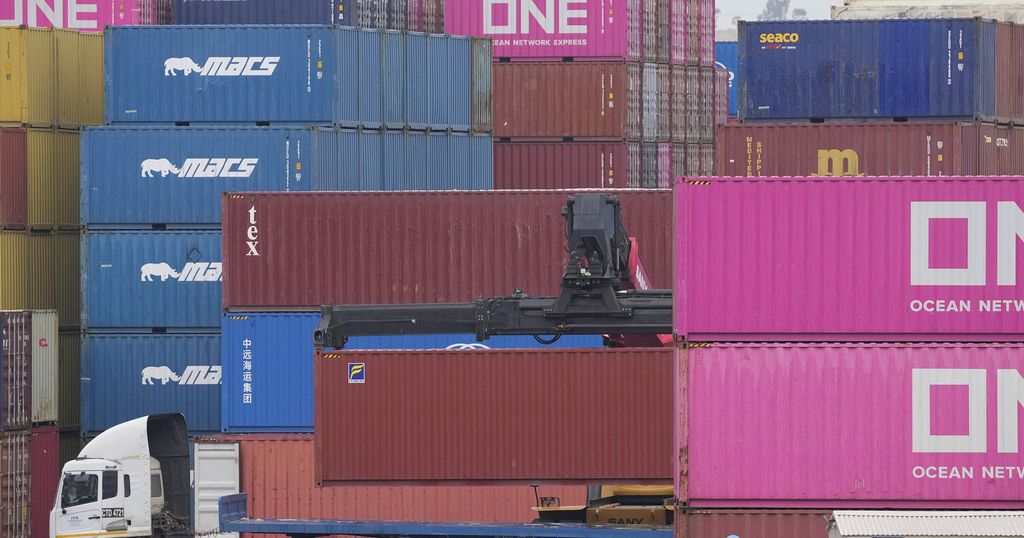Africa
Trump tariffs put 35,000 South African citrus jobs at risk, farmers warn

The new 30% tariffs set to be imposed on South Africa by the Trump administration will threaten 35,000 jobs in the country’s citrus-growing sector and the economies of entire towns, a farmers group said Tuesday.
The Citrus Growers’ Association of Southern Africa said the impending reciprocal tariffs, due to come into effect on Wednesday, will be deeply damaging to South Africa’s largest agricultural export.
The group said the tariffs would likely make South African citrus fruits cost $4.25 more per carton for American consumers. South Africa provides citrus to the U.S. market when it is out of season there.
South Africa is the second-biggest exporter of oranges behind Spain and the world’s fourth-largest exporter of soft citrus fruits, according to the World Citrus Organization.
South Africa sends around 5%-6% of its citrus exports to the United States, which is more than 6.5 million cartons per year, the growers’ association said, but some rural towns were specifically geared to and heavily dependent on the U.S. market.
The farmers’ group cited the case of the town of Citrusdal, near Cape Town, and said it faced major job losses and “maybe even total economic collapse” because it was built on exporting citrus to the U.S. It said there were other rural towns like it.
“There is immense anxiety in our communities,” said Gerrit van der Merwe, the chairman of the Citrus Growers’ Association and a citrus farmer near Citrusdal.
The group said the tariffs were due to come into effect the same week the first citrus fruit of the South African season was being packed to be exported to the U.S. It said it was urgently calling on the South African government to prioritize negotiations with the U.S. on tariff reductions or exemptions on citrus.
“Citrus is not produced in a factory,” Citrus Growers’ Association CEO Boitshoko Ntshabele said. “(South African) citrus growers do not compete with U.S. citrus growers. Quite the opposite. Our high-quality produce sustains consumer interest when U.S. local citrus is out of season, eventually benefitting U.S. growers when we hand over at the end of our season.”
South Africa, the most diverse economy in Africa, has been especially hard-hit by the policies of U.S. President Donald Trump.
Trump’s cuts to U.S. foreign aid removed significant funding from South Africa’s AIDS program, which is the largest in the world and treats around 5.5 million people. Trump has also issued an executive order stopping other federal funding to South Africa over what he said was the South African government’s mistreatment of white minority farmers, many of whom could now be negatively impacted by his new tariffs.
